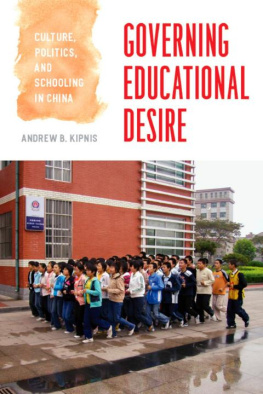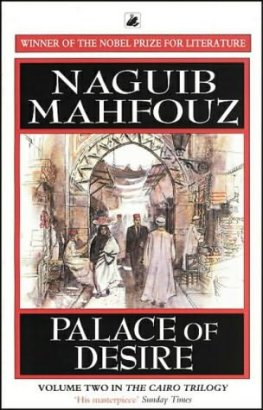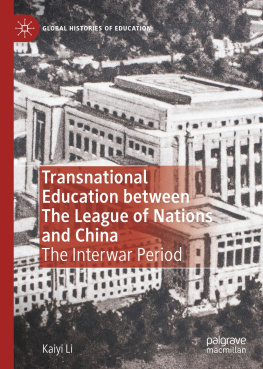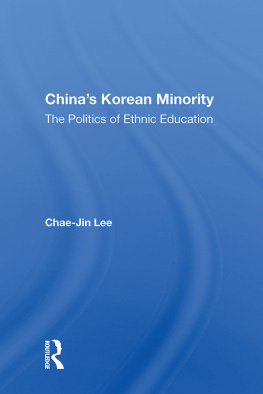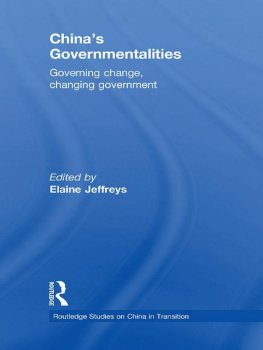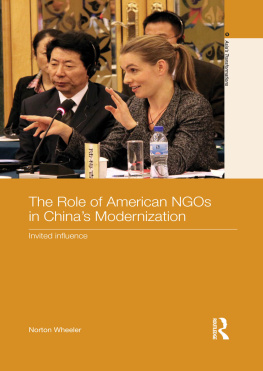ANDREW B. KIPNIS
CHAPTER
CHAPTER
CHAPTER
CHAPTER
FIGURES
TABLES
he research and writing for this book took place over most of the first decade of the twenty-first century. Many debts have been accumulated during this period, and trying to recount them all is a daunting task; I beg forgiveness from those I forget to mention. Institutionally I have spent this decade at the Department of Anthropology and the Contemporary China Centre of the Research School of Pacific and Asian Studies (RSPAS) at the Australian National University (ANU). As RSPAS and its constitutive units were officially restructured out of existence on December 31, 2009, I wish to acknowledge how wonderful an academic environment RSPAS created. An exciting mix of disciplinary and area studies research, of thoughtful colleagues, helpful staff, brilliant students, and stimulating visiting scholars, RSPAS was responsible for some of the world's best English-language writing on the societies, cultures, politics, and histories of the Asia-Pacific region. I am proud that this book is also a product of that school. Colleagues like Geremie Barme, Assi Doron, Ben Hillman, Tamara Jacka, John Makeham, Andrew McWilliam, Francesca Merlan, Mark Mosko, Ben Penny, Kathy Robinson, Alan Rumsey, Sally Sargeson, Graeme Smith, Nick Tapp, and Philip Taylor have provided much input over the years. I especially thank Jonathan Unger and James Fox for bringing me to RSPAS in 1999 and Jonathan Unger, Luigi Tomba, and Janelle Caiger for working closely with me on the China Journal and other related projects. Students like Louise Simon, Alec Soucy, Juan Carlo Thomas, Michael Lickorish, Josaphine Wright, Nico Warrou, Hans Lim, Scott Pacey, Nanlai Cao, Adelyn Lim, Antonella Diana, Tom Cliff, Sin Wen Lau, Jenny Munro, Jamie Coates, Nguyen Thi Thanh Binh, Tina Liu, Lior Rosenberg, and Liang Chen have enriched my world by sharing their thoughts and projects with me. Staff members, including Heli Brecht, Ann Buller, Fay Castles, Penelope Judd, Stephen Meatheringham, Sandie Walters, and Hong Yu have guided me through many bureaucratic mazes and practical problems. I especially thank Darren Boyd, who spent hours digitally converting my color images into the black-and-white prints used in this book.
In Shandong, many people facilitated my research. I have benefited immensely from my association with the Shandong Academy of Social Sciences. Yao Dongfang attended to the troubling task of organizing visas, while my good friend Li Shanfeng worked closely with me collecting data in several research sites and coauthored two papers with me. In Zouping, research assistance was capably provided by Julie Zhai, and bureaucratic support by my longtime friends Han Zhenguang and Yang Xueping. Many educators in Zouping, Pingyuan, and Jiaozhou counties discussed their lives and pedagogic strategies with me. I found their dedication to their profession inspiring and their friendship warm. Out of political caution I will not name them here, but they are surely among the greatest contributors to this project. Thanks are also due to the many Chinese parents and students who shared their hopes and fears.
Many scholars outside of ANU have shared their thoughts, insights, and friendship with me over the years. I thank Ann Anagnost, Joel Andreas, Joe Bosco, Susanne Brandtstadter, Lily Crumley, Goncalo dos Santos, Louise Edwards, Bill Jankowiak, Fan Ke, Judith Farquhar, Stephan Feuchtwang, Vanessa Fong, Martin Forsey, Carl Gerth, Thomas Gold, Doug Guthrie, Dorothy Holland, Carolyn Hsu, James Lee, Bradley Levinson, Linda Li, Lin Qinghong, Kam Louie, Gordon Mathews, Helena Obendiek, Nyiri Pa1, Frank Pieke, Charles Stafford, Stig Thogersen, Tia Thorton, Emily Wilcox, Terry Woronov, Mayfair Yang, and Zhu Xiaoyang. I would like to single out Borge Bakken, whose underappreciated masterpiece, The Exemplary Society, was a particular inspiration for this book. Audiences at talks given at various conferences and institutions, including Cambridge University, Oxford University, Peking University, Nanjing University, the University of Manchester, the University of North Carolina at Chapel Hill, Aarhus University, Macquarie University, the University of Hong Kong, City University of Hong Kong, the Chinese University of Hong Kong, Hong Kong Science and Technology University, and the Max Planck Institute, provided valuable feedback.
Financially, research for this book was supported by research grants from the Australian Research Council, especially a Discovery Grant (DP0556422) but also a Linkage Grant (LX0775919) and a more recent Discovery Grant (DPo9845io). The University of Chicago Press has been a pleasure to work with. The anonymous reviewers for the Press provided many useful suggestions, most of which I have tried to incorporate and a few of which I have ignored at my own peril. One of these reviewers, Heidi Ross, revealed her identity to me. I have found her comments especially useful. Elizabeth Branch Dyson both read the manuscript from start to finish, suggesting many concrete improvements, and guided me through the Press's review process. Her help has made publishing this book a joy. Anne Goldberg and Susan Tarcov also provided much practical assistance and editorial advice.
My wife, Kejia, and son, Jonathan, put up with both the physical absences required to complete the fieldwork for this book and the absentmindedness that results from too much attention to abstract projects. As much as anything, their tolerance for my academic preoccupations allowed me to write this book.
n 2005 and 2006, during the course of research on education reform in Zouping County, Shandong Province, the People's Republic of China (PRC), I conducted a survey of households with a child in the sixth and final year of primary school. I surveyed over a hundred households, and my project design ensured that they included richer and poorer households, rural and urban households, parents engaged in a wide variety of occupations, and students with above and below average academic records. When I asked whether they wanted their child to attend college, one hundred percent of the parents that I interviewed in both rural and urban Zouping answered affirmatively. Many expressed this desire quite strongly, saying that it would be one of the most glorious dreams that they could imagine if their child were able to test into college. Many were even shocked that I could ask such a question: "Of course," "Isn't that what everybody wants?" and "How could someone not want that?" were common replies. The rural households, in which many of the parents had attended only a few years of primary school themselves, were just as enthusiastic as the urban households. Only three of the fifty-eight rural households that I surveyed even qualified their responses with asides like "if I can afford the tuition" or "if [so and so] is bright enough."
This book examines educational desire, in Zouping and elsewhere, in the broadest possible perspective, as what Marcel Mauss would have called a "total' social phenomenon ... at once legal, economic, religious, aesthetic, morphological and so on" (Mauss 1967 [19251:76). The consequences of this desire are vast, influencing household and national economic priorities, birthrates, ethnic relations, patterns of governing, gender relations, and state ideologies. But for the most part this book focuses on the causes of this desire, not the consequences. Just where does this desire come from? What are the specific cultural, economic, political, and social circumstances that frame its emergence?
FIGURE I. Map of China, as displayed in a Zouping primary school. Shandong province is highlighted. As with the following maps, the original was in bright colors.

